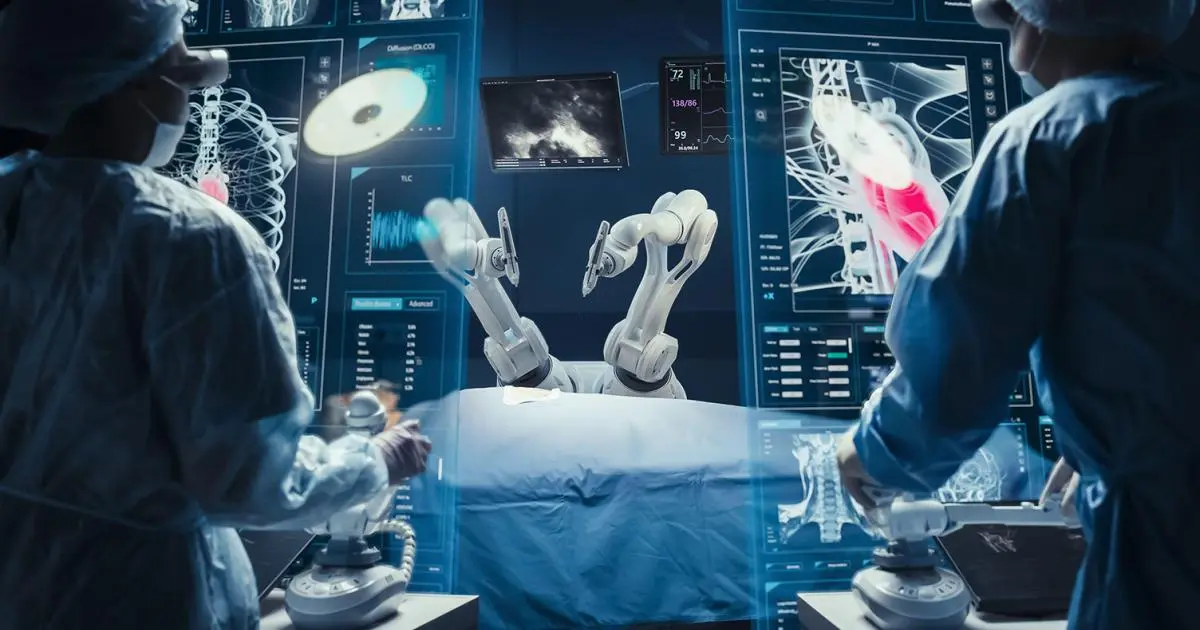The healthcare industry is on the brink of a transformative revolution, driven by the rapid advancements in artificial intelligence (AI). From diagnosing diseases to personalizing treatment plans, AI is poised to reshape the way healthcare is delivered, making it more efficient, accurate, and accessible. As we look to the future, the integration of AI into healthcare promises to address some of the most pressing challenges in the field, including rising costs, physician shortages, and the growing burden of chronic diseases. Here’s a glimpse into how AI is set to revolutionize healthcare in the coming years.
Early Disease Detection and Diagnosis
One of the most promising applications of AI in healthcare is its ability to detect diseases at an early stage. Machine learning algorithms, trained on vast datasets of medical images, lab results, and patient histories, can identify patterns that may be invisible to the human eye. For instance, AI-powered tools are already being used to detect cancers, such as breast and lung cancer, with remarkable accuracy. In the future, these systems could become even more sophisticated, enabling the early diagnosis of conditions like Alzheimer’s, heart disease, and diabetes long before symptoms manifest. This early detection could significantly improve patient outcomes and reduce healthcare costs by preventing the progression of diseases.
Personalized Medicine
AI is paving the way for personalized medicine, where treatments are tailored to an individual’s genetic makeup, lifestyle, and environment. By analyzing data from genetic tests, wearable devices, and electronic health records, AI can help physicians develop customized treatment plans that are more effective and have fewer side effects. For example, AI algorithms can predict how a patient will respond to a specific medication, allowing doctors to prescribe the most suitable drug and dosage. This approach not only enhances patient care but also minimizes trial-and-error prescribing, which can be costly and time-consuming.
AI-Driven Drug Discovery
The traditional drug discovery process is notoriously slow and expensive, often taking over a decade and billions of dollars to bring a new drug to market. AI has the potential to accelerate this process by analyzing vast amounts of biological and chemical data to identify potential drug candidates. Machine learning models can predict how different compounds will interact with targets in the body, significantly reducing the time and cost of preclinical research. In the future, AI could enable the rapid development of treatments for rare diseases and emerging health threats, such as new viruses, by streamlining the drug discovery pipeline.
Enhanced Medical Imaging
Medical imaging is another area where AI is making significant strides. AI algorithms can analyze X-rays, MRIs, CT scans, and other imaging data to detect abnormalities with high precision. For example, AI systems can identify fractures, tumors, or signs of stroke in seconds, allowing radiologists to make faster and more accurate diagnoses. In the future, AI could also assist in real-time imaging during surgeries, providing surgeons with enhanced visualization and guidance to improve outcomes.
Virtual Health Assistants and Telemedicine
The rise of virtual health assistants and telemedicine platforms is transforming patient care, making it more accessible and convenient. AI-powered chatbots and virtual assistants can provide patients with instant medical advice, schedule appointments, and even monitor chronic conditions remotely. These tools are particularly valuable in underserved areas where access to healthcare professionals is limited. In the future, AI-driven telemedicine could enable continuous monitoring of patients with chronic illnesses, reducing hospital readmissions and improving quality of life.
Predictive Analytics for Preventive Care
AI’s ability to analyze large datasets and identify trends makes it a powerful tool for predictive analytics in healthcare. By analyzing patient data, AI can predict the likelihood of diseases, hospital readmissions, or complications, allowing healthcare providers to intervene early. For example, AI algorithms can identify patients at risk of developing sepsis or heart failure, enabling timely interventions that can save lives. In the future, predictive analytics could be integrated into everyday healthcare, helping to shift the focus from reactive to preventive care.
Robotic Surgery and Automation
Robotic surgery, powered by AI, is already transforming the operating room. AI-assisted robotic systems can perform complex procedures with greater precision and control than human hands alone. These systems can also reduce the risk of complications and shorten recovery times. In the future, AI could enable fully autonomous surgeries, where robots perform procedures with minimal human intervention. Additionally, AI-driven automation could streamline administrative tasks, such as billing and scheduling, freeing up healthcare professionals to focus on patient care.
Ethical Considerations and Challenges
While the potential of AI in healthcare is immense, it also raises important ethical and practical considerations. Issues such as data privacy, algorithmic bias, and the need for regulatory oversight must be addressed to ensure that AI is used responsibly and equitably. There is also a need for ongoing training and education to help healthcare professionals adapt to these new technologies. As AI continues to evolve, collaboration between technologists, clinicians, and policymakers will be essential to harness its full potential while safeguarding patient rights and safety.
Conclusion
The future of healthcare is undeniably intertwined with the advancements in artificial intelligence. From early disease detection to personalized treatments and robotic surgeries, AI has the potential to revolutionize every aspect of healthcare delivery. While challenges remain, the benefits of AI—improved accuracy, efficiency, and accessibility—are too significant to ignore. As we move forward, the integration of AI into healthcare will not only enhance patient outcomes but also pave the way for a more sustainable and equitable healthcare system. The future is bright, and AI is at the heart of this transformative journey.
